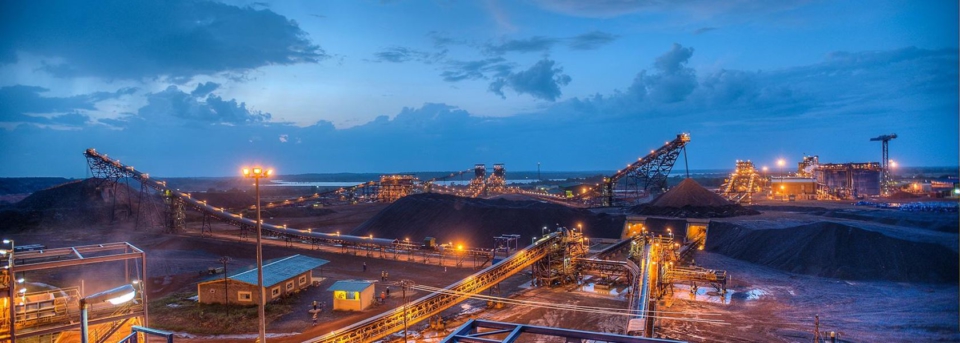Against the backdrop of the “Fix the Country” campaign and the recent protests against the presidency and at a time when people are calling for a change in leadership and an end to corruption, the behaviour of the mining sector authorities is also casting a shadow over government action.
And it’s threatening to stop investments in the country from mining operators.
It seems a long time ago that Ghana was a model of stability and regional governance. Nowadays, when people talk about the country’s socio-economic climate, images of protests and corruption scandals are what come to mind.
Although this situation is underpinned by a foundering economy, it is worsened by the ongoing deterioration in the business climate.
The result is that Ghana’s indicators are in freefall – as evidenced by just how far it has fallen in the leading international rankings.
For example, Ghana is in 118th position of the most recent Doing Business ranking (an index created by the World Bank in 2003 to assess the business environment of 190 different countries).
That’s a fall of 48 places in only five years. The same can be seen in the Corruption Perceptions Index, published every year by the NGO Transparency International: Ghana has plummeted from 56th to 80th place over the same period. According to the United Nations Development Programme (UNDP), in 2019, an estimated US$2 billion was being lost every year because of corruption.
Sensitive issues
The extractive sector has been particularly hard-hit by these repeated scandals. This applies to both operators in the mining sector and to stakeholders operating in the petroleum sector. – Ghana is currently the fifth largest producer of oil in sub-Saharan Africa, just behind Nigeria, Angola, Congo and Gabon.
In spring 2020, the Minister for Finance and Economic Planning Ken Ofori-Atta was accused of having pressured Exxon Mobile into choosing GOIL as an investment partner – instead of publicly-owned Griffon Energy – and of having received a stake in a block off the Ghanaian coast.
In addition to the corruption scandals that have tainted the sector, recent government decisions raise questions about its motivations, threatening future investments. In the gold sector, which plays an essential role in the economy of a country which is the leading producer of gold in Africa, two examples have made the headlines over the last few months.
First of all, Cassius Mining, which initiated international arbitration proceedings following the government’s refusal to renew its Gbane gold licence – a decision supported by the National Minerals Commission, the mining sector regulatory body which is run by two close friends of Kwaku Asomah-Cheremeh, the former Minister for Lands and Natural Resources.
Damaged trust
More recently in April, the Minister for Lands and Natural Resources opposed finalising Resolute Mining’s sale of the Bibiani gold mine to the Chinese Chifeng Jilong Gold Mining and decided to terminate its mining lease, causing a great deal of commotion across the sector.
The abrupt and groundless order to cease all activity prompted the Australian operator to consider legal proceedings.
The similarities between these two affairs will not have escaped anybody’s attention, and they will have both most likely damaged investor confidence in the mining sector a little more.
Particularly since the National Minerals Commission has been highly criticised – it has been accused of illegally and fraudulently awarding gold concessions on private properties and of conducting defamatory audits to put pressure on mining operators.
And then in June, it was also accused by the investigative journalism project The Fourth Estate of seeking to monetise public information.
Are the initiatives underway to straighten out the sector enough? That is far from certain. As far as the government is concerned, the dismissal of the former Minister for Lands and Natural Resources who – amidst growing criticism – could not stay in his post, has not been sufficient to consign the sector’s poor management to the past.
As far as the Minerals Commission is concerned, although the March reshuffle has helped the new Minister for Lands and Natural Resources Samuel Abu Jinapor with his strategy to rehabilitate the governance of government agencies, his decision to replace CEO Addae Antwi-Boasiako with his deputy Martin Ayisi has not been universally popular – there are a number of suspicions about his career in the mining sector.
There are no guarantees that this appointment will reassure operators.
Latest Stories
-
Over 200 substandard hospitality facilities in the Ashanti region face closure by GTA
27 minutes -
Sinapi Aba’s Joyce Owusu-Dabo honoured Personality of the Decade by African Women in Banking and Finance Magazine
43 minutes -
Africa AI Health forum explores practical uses of generative AI in healthcare
1 hour -
AG has recovered 10.6% of the Unibank liability, not 60% as he claims – Bright Simons
1 hour -
Residents commend MTN for community engagement, call for continuous service improvements in Tsito
2 hours -
Al-Azhariya Islamic cluster of schools in deplorable state: Teachers call for renovation
2 hours -
France urged to address colonial legacy as Senegalese activists call for reparations in Dakar Roundtable
2 hours -
“Eat AI, drink AI, live AI” – UG Professor
2 hours -
Direct Relief applauds Breast Care International for lifesaving medical support in Ghana
2 hours -
“A cultural force and national treasure” – Tourism Minister pays tribute to late Daddy Lumba
2 hours -
Kufuor mourns Highlife icon Daddy Lumba: “A thunderbolt to the nation”
2 hours -
Hindsight: Zito’s Kotoko era begins with a blast from the past
2 hours -
Prosper Ogum appointed Black Starlets boss and GFA head of coaching education
2 hours -
NSMQ 2025: Prempeh College into Ashanti Zonal semis, chasing first title since 2021
2 hours -
“A true professional and musical gem” – Appietus pays tribute to Daddy Lumba
2 hours

